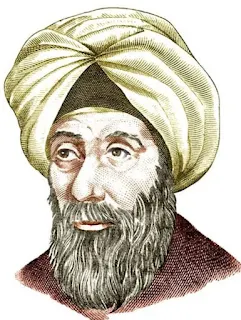The featured philosophers include Abu Yusuf Yaqub
Ibn Ishaq Kundi, Abu al-Nasr Muhammad ibn Muhammad, Uzlagh ibn Tarkhan
al-Farabi, Abu Ali Hussain ibn Abdullah ibn Sina, Abu Hamid Muhammad Ghazali,
Abu Bakr Muhammad ibn Yahya alias Ibn Baja, Abu Bakr ibn Abdul Malik ibn Tufail
Andalsi, Muhammad ibn Ahmad ibn Muhammad ibn Rashid Ibn Muhammad Khaldun,
Ikhwan al-Safa, Abu Ali Muhammad ibn al-Hasan ibn al-Haytham, Mohi-ud-Din ibn
al-Arabi, and Abu Ali Khazan Ahmad ibn Muhammad Ya'qub Muskwiyah.
Dr. Lotfi Juma asserts that Muslim philosophers
dedicated their efforts to advancing philosophy in both Islamic cities of the
Arab world and the West. He questions the motivation behind their pursuit,
pondering whether it stemmed from their belief originating in the Arabian
desert through the pure language of Muhammad (pbuh).
According to Dr. Lotfi Juma, the ideas of Muslim
philosophers were inherently in harmony with Islam. He contends that had these
thinkers been allowed to work openly, the world, particularly Muslim nations,
might have attained higher levels of development. The author addresses
accusations against philosophers like Ibn Sina, refuting claims of book burning
and opportunism, while acknowledging the complexities of historical events.
The author sheds light on Farabi's early life,
noting his passion for learning in Baghdad, and questions why he studied by the
light of street lamps. Additionally, Dr. Lotfi Juma discusses the paradoxical
perception of Imam Ghazali as a philosopher while Mohi-ud-Din Ibn Arabi,
despite his prominence in philosophy, is not recognized as such by some.
Reference:
Muhammad Lutfi Juma, Translator: Dr. Mir Wali-un-deen, (2006), Azeem Musalman Falsafi, Da-e-Shaoor, Lahore, Pakistan.











No comments:
Post a Comment
If you harbor any reservations regarding this website or any specific article, I wholeheartedly welcome and encourage you to voice your concerns. Your perspective is valued and will serve as motivation for me to continually improve and enhance the quality of the content provided.